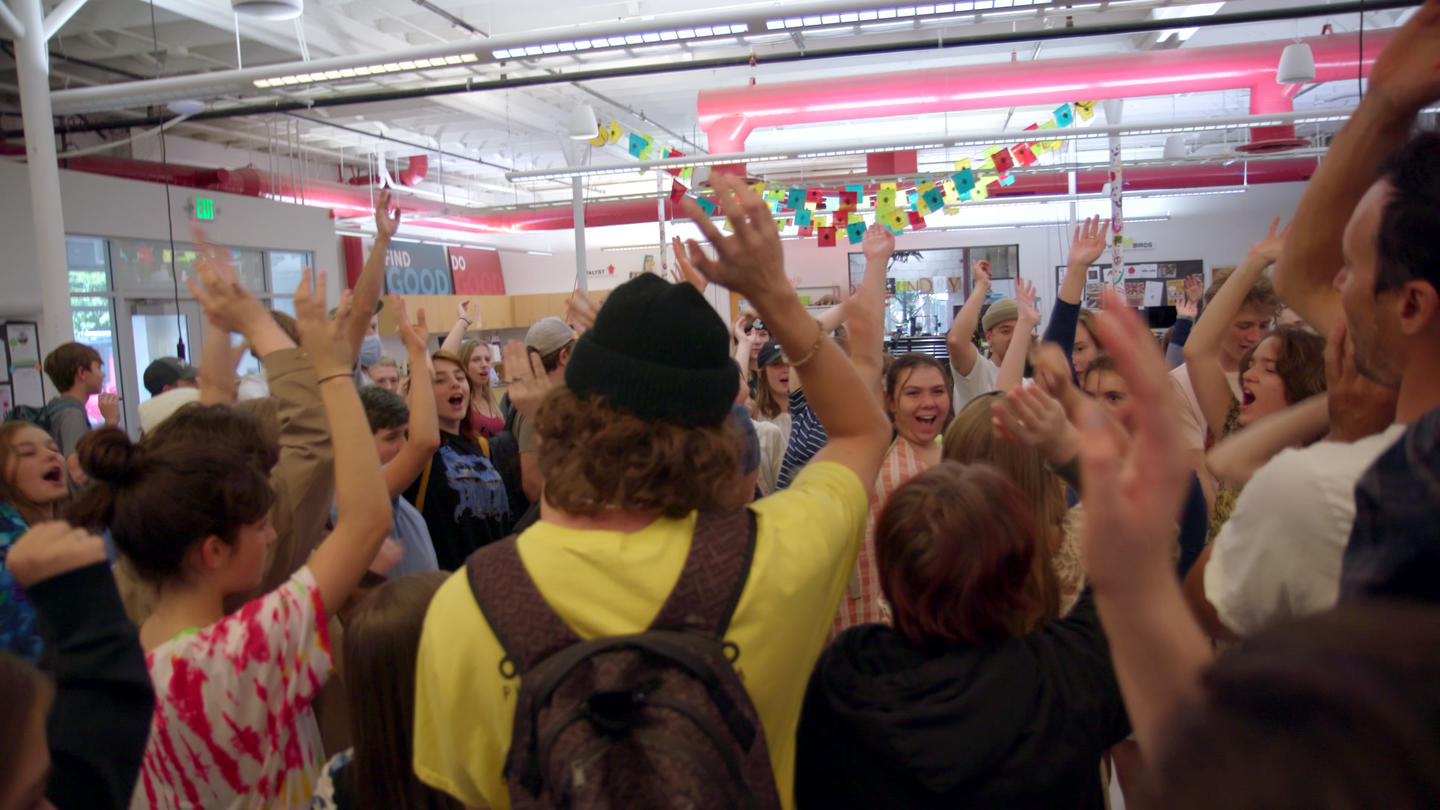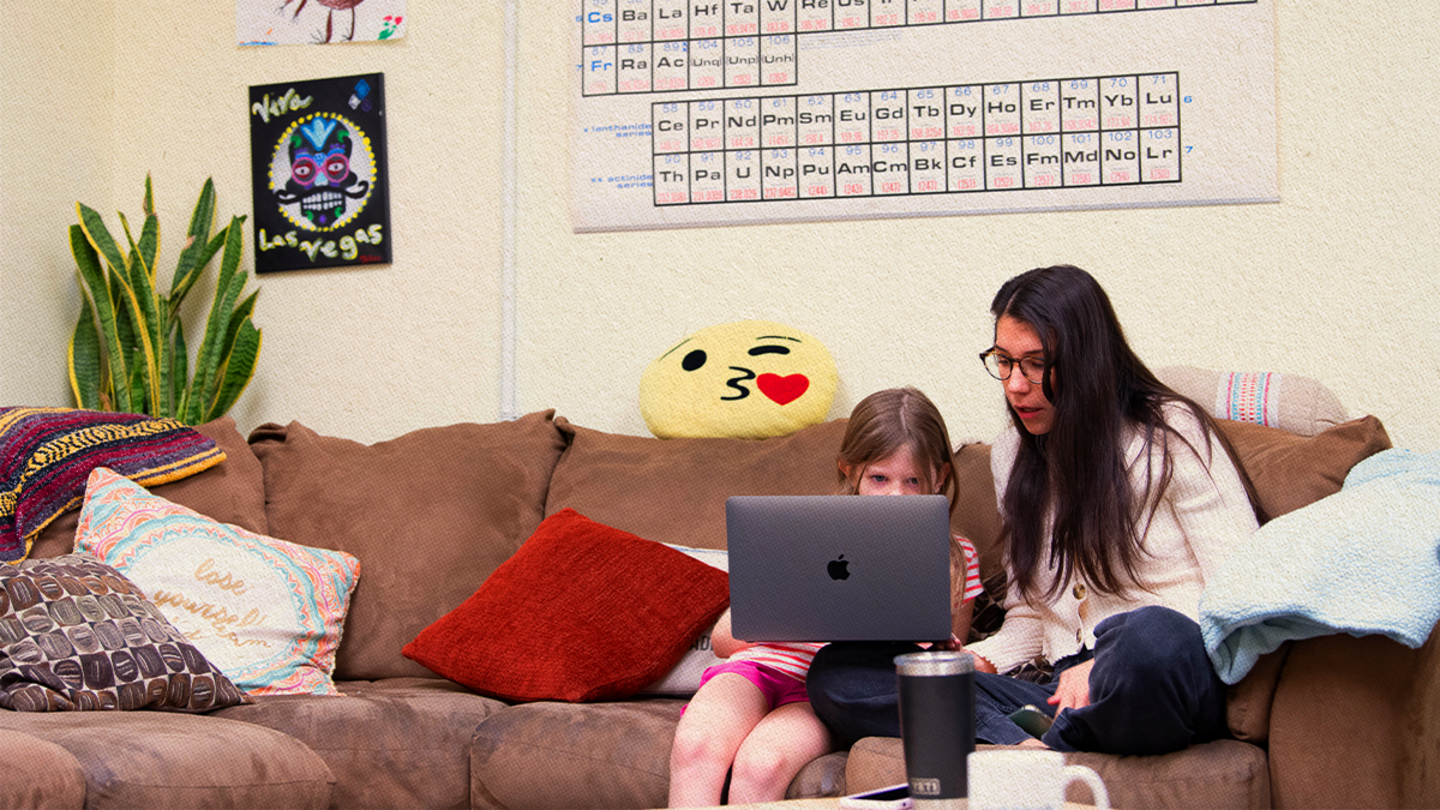No teachers, no tests, and no grades — welcome to a student-run school.
One Stone, a school in Boise, Idaho, is demonstrating education reimagined. The idea for having students play a central role in their own curriculum — and, by extension, future — arose when instructors noticed that their students were struggling to find motivation in classes that didn't seem to relate to real life at all.
"Before One Stone, I would have considered myself a student who wasn't passionate about anything," says Raya, a One Stone class of 2024 student.
So, they decided to take a different approach, and give students the freedom to choose what they would learn, and how. Since then, One Stone has blossomed into a collaboration between students and educators that prioritizes personal growth and introspection just as much as traditional subject matter. Students are emerging from the school confident in their goals, and ready to face the future.
Students can struggle to find motivation within traditional education structures
While 74% of fifth graders are engaged in what they're learning, by the time they reach tenth grade, it drops to 33%. Only 20% of public school students understand how their education is useful outside the classroom.
"After 15 or 20 years of teaching, I started to realize that students were becoming more and more disengaged, no matter what we were doing or how interesting I thought it was," says Chad Carlson, Director of Research and Design at One Stone.
Students can struggle within the "machine" of the school system when they can't answer the why of it all. Without being able to make connections between what they were learning and how it would be relevant to them later in life, it is hard to feel that education matters.
A large driver of this is that traditional education methods often don't let students explore their unique interests, which will ultimately give a sense of purpose and drive.
"They come out of the K - 12 experience not really knowing who they are, and not really knowing the 'why' behind their next steps," says Carlson.
How a student-run school works
Can you really put students in charge?
In some ways, it was impossible to tell until One Stone's first school year started. The process was entirely collaborative, meaning that students and teachers worked together to mold, test out, and recalibrate the educational process in real time.
However, they dove in head-first, driven by a central question, according to Teresa Poppen, One Stone Co-Founder: "How do we connect what we do everyday to the real world?"
In a non-traditional high school like One Stone, there are no teachers. Instead, there are "coaches," whose role is not to give lectures or assessments, but rather discussion and guidance. Students are their equals, with as much legitimacy as their coaches. They are able to decide on the curriculum they would like to pursue and the learning style they choose to do so with. Doing so provides a non-traditional learning atmosphere that avoids putting students into pre-set categories and following rigid one-size-fits-all curriculum.
Every One Stone student is urged to reflect on what they want to be, and what their passions are — and it's OK if they don't know quite yet.
They are free to design projects that utilize their personal interests, whether that be music, photography, design, or anything else. There is an emphasis on exploring the real-world applications of these interests: students are able to work with businesses and other partnerships to put their burgeoning skills to the test.
Rather than grades, students progress via "growth transcripts." These include observations of traditional subjects such as math and reading, alongside goal setting, vulnerability, and empathy. These soft skills are just as crucial, if not more, predictors of success and fulfillment in later careers. Students are not just assessed by mentors, but also their peers, and importantly themselves.
In fact, hiring managers are increasingly prioritizing soft skills just as much as work experience when considering applicants for job roles. Nearly 75% of employers claim they struggle to find candidates that possess the "human" skills that will lend to better interpersonal relationships in the workplace. These include characteristics such as creativity, collaboration, empathy, and dependability — exactly the qualities that One Stone nurtures in students.
The students do have to fulfill college requisites — required coursework in mathematics, literature, languages, and the like — to qualify for university applications, but can choose to do so any way they like. The flexibility allowing them to pursue these subjects within the learning style and setting they're most comfortable in translates to more interest, and ultimately higher levels of success, in each area.
Students send along their portfolio of projects, as well as their growth transcripts, to colleges, resulting in acceptances at over 135 institutions across the country thus far. Others are encouraged to forego college if they feel they're better suited to directly dive into the working world — and they're well-equipped with the hands-on experiences provided at One Stone.
Scaling up means sharing successes and methods with like-minded schools
"In every way possible I've grown. I'm a lot less worried about the future"
"Compassion is my intention for this year."
"I want to explore the unfamiliar, and deepen my connection with the world."
These were the reflections shared by students ahead of a new year at One Stone, exhibiting just how holistic their focus is.
The non-traditional schooling available to them allows them to incorporate self-reflection into their curriculum alongside history and biology. They routinely stop to explore why they are at One Stone, who they hope to become, and how they have grown thus far.
"I'm at One Stone to find my purpose," says one student. "I'm going to lead myself with peace and patience to explore my passions and develop a strong relationship with my full self."
One Stone does not anticipate opening up similar schools elsewhere. Instead, scaling up means sharing their methods with other schools who also wish to prioritize practical applications of school subjects and encouraging soft skills amongst students. Though these other institutions may not be able to adopt One Stone's complete model, they can still incorporate the core pillars that have been so successful thus far — giving students a voice and autonomy, emphasizing self-discovery and identifying one's skills, and pursuing one's passions and having a purpose to guide their high school education.
"We can take this one seed we planted in Boise and watch it grow to many other places," says Carlson.
Doing so will allow One Stone to grow from a defector, to a community. And it will help students emerge from high school understanding not only the purpose of their education, but the direction of their lives.
Learn more about Stand Together's education reform efforts.




